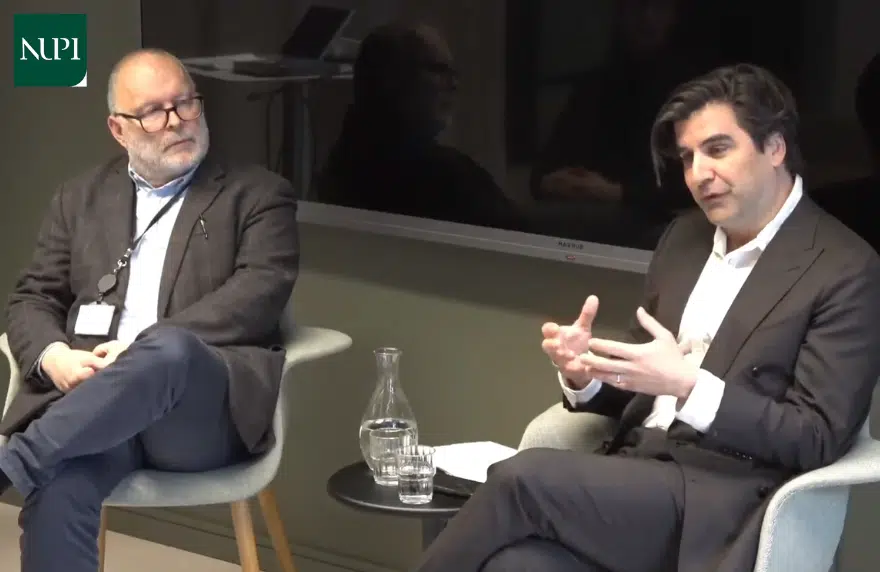How do foreign direct investments from autocracies impact global politics? On February 26, HCSS research director Tim Sweijs spoke at NUPI, the Norwegian Institute of International Affairs, about how to protect national security and prosperity at a time when European economies are on the receiving end of coercive statecraft not just from Russia and China but also from the US.
The symposium was hosted by NUPI as part of a large project on foreign direct investments and critical infrastructure, centering on the question: how can liberal open societies reap the benefits of open economies, but at the same time protect their legitimate security interests? The discussion with Hans Jørgen Gåsemyr was moderated by Jakub M. Godzimirski .
Sweijs’ remarks were based on the Chapter he co-authored with Marleen de Haan, “Geographical Dwarf, FDI Giant—Protecting Security and Prosperity: The Peculiar Case of the Netherlands“, in the volume “The Political Economy of National Security, Critical Infrastructure and Securitization of Foreign Investments”, edited by Jakub M. Godzimirski and Morten Skumsrud Andersen.
Rewatch the entire discussion here:
There is an increasing concern for areas where national security intersects with economic flows. How do governments perceive and respond to investments from state-sponsored actors, particularly China and Russia? This is what the authors of “The Political Economy of National Security, Critical Infrastructure and Securitization of Foreign Investments” have investigated. The book addresses the securitization of cross-border capital movements and the broader implications for the international liberal order.
This book is a part of a NUPI led project that has now come to an end. The COINS project has investigated how liberal economies can attract foreign investments whilst at the same time mitigate the risks associated with such investments. Read more about the project here.
During this book launch Research Professor Jakub Godzimirski (NUPI) introduced the book and moderated the discussion, with a panel featuring Tim Sweijs (The Hague Centre for Strategic Studies), Charlotte Hafstad Widerberg (UiO) and Hans Jørgen Gåsemyr (NUPI).







